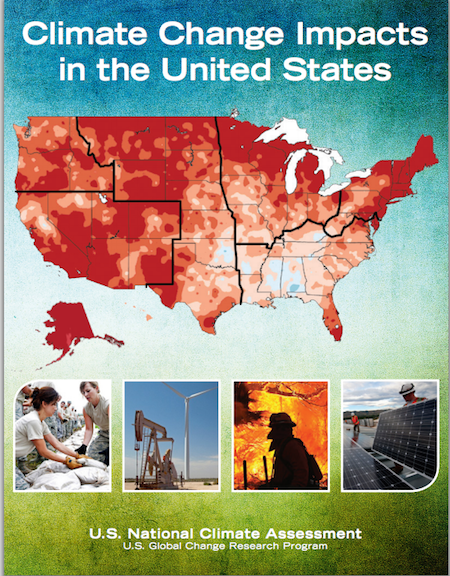
The recently released Third National Climate Assessment, published by the U.S. Global Change Research Program, features references to papers by several SNR and IANR faculty members. The papers are referenced in chapter 19, which covers the Great Plains region.
The papers quoted in the assessment are:
"Earlier winter wheat heading dates and warmer spring in the U.S. Great Plains" by Steve Hu, climatologist and SNR professor; Al Weiss, emeritus agricultural meteorologist; Song Feng, SNR adjunct faculty; and Peter Baenziger, agronomy and horticulture professor.
"Interannual and spatial impacts of phenological transitions, growing season length, and spring and autumn temperatures on carbon sequestration: A North America flux data synthesis," which was co-authored by Shasi Verma, emeritus micrometeorologist; Andy Suyker, SNR research professor of micrometeorology; and researchers from other institutions.
The assessment also references a figure from the "Atlas of the Great Plains" by Stephen Lavin, a former geography professor; Clark Archer, geography and GIScience professor; and Fred Shelley, geography professor at the University of Oklahoma. "Atlas of the Great Plains" is available from the University of Nebraska Press at http://go.unl.edu/4kx.
The Third National Climate Assessment is the most comprehensive, authoritative and transparent scientific report on U.S. climate change impacts ever generated. The assessment was developed over four years by hundreds of the nation's top climate scientists and technical experts. Its development was guided by a 60-member Federal Advisory Committee and informed by extensive input from the public and outside organizations gathered through town hall meetings, public comment opportunities and technical workshops across the country.
To download and view the assessment, visit http://go.unl.edu/708w.